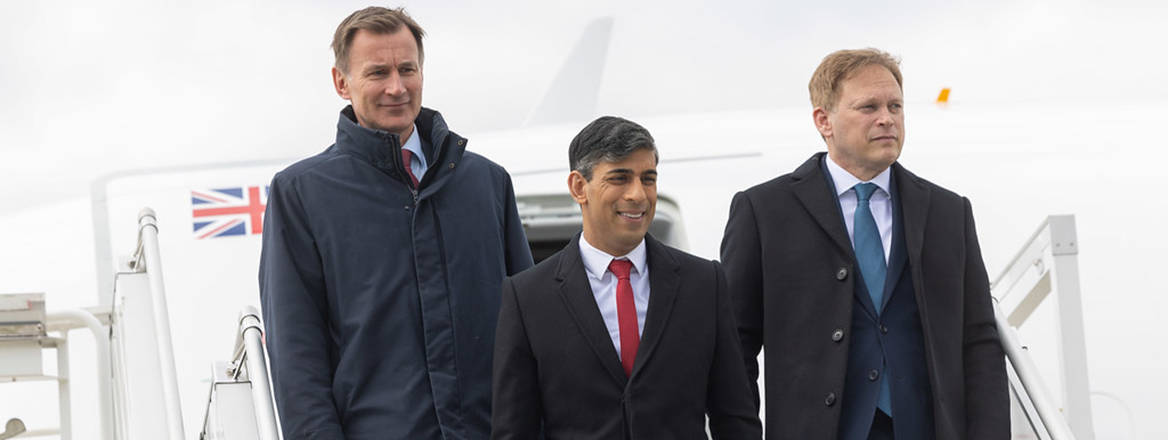RUSI
|
|
Committing to 2.5%: Is Help at Hand for the UK's Defences?
The recent announcement that the UK will commit to spending 2.5% of GDP on defence by 2030 is welcome news for the country’s armed forces, even if how the increase will be funded remains as yet unclear.

Prime Minister Rishi Sunak’s 23 April announcement of a firm timetable for reaching 2.5% of GDP on defence has been warmly welcomed by the Ministry of Defence (MoD) – not least because it is such a dramatic turnaround from the government’s position only last month.
In the Spring Budget, published on 6 March, Chancellor Jeremy Hunt refused to commit any new money to defence. Instead, at a cost of some £9 billion per annum, he used all his fiscal headroom to reduce National Insurance contributions. While the government remained committed to spending 2.5% ‘when the fiscal and economic circumstances allow’, its prioritisation of tax cuts appeared to guarantee that those circumstances would not exist any time soon.
This impression was reinforced by the UK’s recent record of defence spending compared with its main European allies. While it had taken the lead in supporting Ukraine in the first months of the war, the financial value of its contribution had fallen behind that of both Germany and the combined contribution of the Scandinavian countries. The core defence budget (excluding Ukraine) had not risen in real terms over the last two years. And, over the period since 2014, UK defence spending had increased less rapidly in percentage terms than in almost any other European NATO member. The scale of the transformation in defence budgets among European allies has been reflected most dramatically in the case of Germany, which – for the first time since 1945 – is set to overtake the UK as NATO biggest defence spender in Europe this year.
In the very last months of this parliament, all of this appears to be about to change. Strikingly, the new approach has not been announced at a Spending Review, a Defence Review or a Budget, but at a press conference in Warsaw. It is no less noteworthy for its unusual timing and form.
The new spending settlement provides the MoD with an opportunity to close the gap in its equipment plan identified by the National Audit Office, and to respond more rapidly to the lessons of the Ukraine war
No more money has been announced for the 2024/25 financial year, aside from an extra £500 million for Ukraine. Beyond that, however, the government has committed to increases in defence spending amounting to just over 3% in real terms for each of the next six years. By 2030/31, total annual spending (following the NATO definition) will amount to some £87 billion. This will include long-term spending on support for Ukraine. Compared to a baseline of ‘flat cash’, the government calculates that this will require an additional £75 billion over six years.
The new spending settlement provides the MoD with an opportunity to close the gap in its equipment plan identified by the National Audit Office, and to respond more rapidly to the lessons of the Ukraine war. By providing a financial commitment lasting well beyond the next Spending Review, it should help the MoD to agree longer-term, and more cost-effective, contracts with defence suppliers. The commitment to doubling levels of spending on munitions is especially noteworthy. The government paper ‘Defending Britain’, released by the Cabinet Office along with the prime minister’s speech, sets out a range of ideas for where the extra money will go. But it will be for the next Spending Review – or the next Defence and Security Review – to decide in detail how it can be most effectively employed.
Yet, before getting to that stage, the government will need to agree how to fund its increased commitment to defence. This is the least convincing element of the paper. The prime minister has said that the plan is ‘fully funded, without any increase in borrowing or debt’. But a sustained increase in defence spending of some £10 billion per annum (compared to previous planning assumptions) is bound to require a comparable scale of tax rises, additional cuts in other government departments, or some mixture of the two. It will be for the next government to decide how to answer this critical question.
The views expressed in this Commentary are the author’s, and do not represent those of RUSI or any other institution.
Have an idea for a Commentary you’d like to write for us? Send a short pitch to commentaries@rusi.org and we’ll get back to you if it fits into our research interests. Full guidelines for contributors can be found here.
Original article link: https://rusi.org/explore-our-research/publications/commentary/committing-25-help-hand-uks-defences


.png)